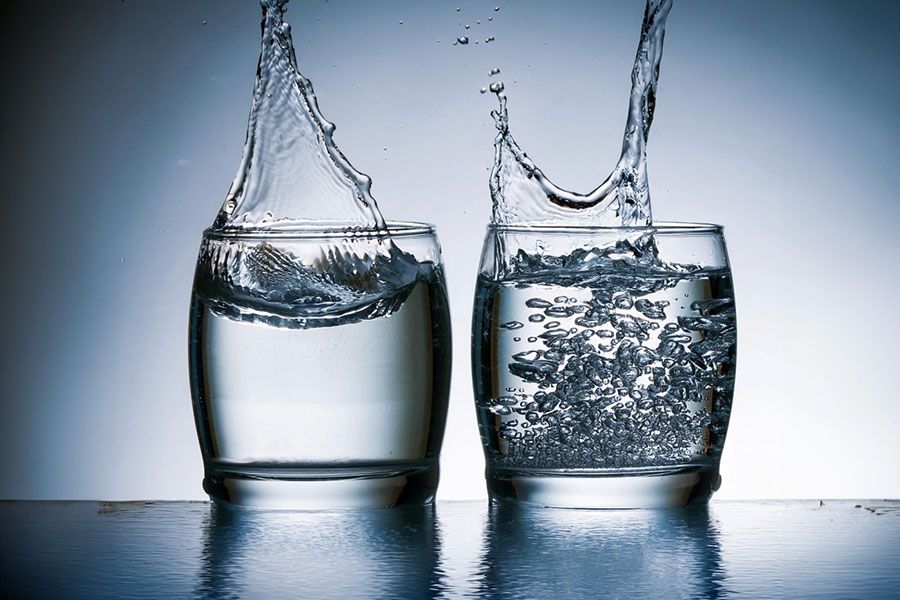Hard Water vs Soft Water: Which is Better for Health

Before diving into the debate, let’s ask a simple question: have you ever noticed that water doesn’t always taste the same everywhere? Sometimes it feels smooth and refreshing, while other times it leaves a salty or metallic aftertaste. This difference usually comes down to whether the water is hard or soft. Both are safe to drink, but they affect your health, skin, and daily use in different ways.
What is Hard Water?
Hard water contains high levels of minerals, especially calcium and magnesium. While these minerals are not harmful, they can give water a slightly salty or chalky taste. Hard water is common in areas with groundwater sources and can often lead to scale build-up in kettles, pipes, and appliances.
Health Effects of Hard Water
Hard water can actually be a good source of essential minerals like calcium and magnesium, which play an important role in keeping your bones strong and supporting heart health. However, when these minerals are present in very high amounts, they may cause digestive discomfort for people with sensitive stomachs. Another common downside of hard water is that it leaves residue on the skin and hair, often making the skin feel dry and the hair appear dull or rough over time.
What is Soft Water?
Soft water, on the other hand, has very low levels of calcium and magnesium. It usually comes from surface sources like lakes and rivers or has been treated to remove hardness. Soft water feels smoother, tastes lighter, and lathers more easily with soap.
Health Effects of Soft Water
Soft water is often considered gentler on the skin and hair since it doesn’t leave behind any residue, making it a better choice for bathing and washing. Its light and smooth taste also makes drinking water a more enjoyable experience, encouraging people to stay hydrated throughout the day. However, because soft water has very low levels of calcium and magnesium, it lacks the beneficial minerals that are naturally present in hard water, even though it remains perfectly safe to drink.
Which One to Select?
Both hard and soft water are safe to drink, but the choice depends on your health needs and lifestyle. Hard water gives you extra minerals, but it may cause dryness and scale build-up. Soft water feels refreshing and is easier on your body and appliances, but it may not provide added minerals.
Why Choose DrinkPrime
Whether you get hard water or soft water at home, the real question is: how do you make sure it’s always safe, clean, and pleasant to drink? That’s where DrinkPrime comes in. DrinkPrime offers advanced RO water purifiers that are specially designed to tackle the challenges of both hard and soft water. If you’re dealing with high TDS levels, excess salts, or chemical contaminants in hard water, DrinkPrime’s purifiers ensure that these impurities are removed while keeping your water fresh and crisp. And if you have soft water, DrinkPrime makes sure it stays free from bacteria, chlorine, and other pollutants that can affect taste and safety.
By combining convenience with technology, DrinkPrime ensures that you and your family never have to compromise on water quality, no matter what type of water flows into your home.
Disclaimer:
DocIndia.org does not have any intention to provide specific medical advice, but rather to provide its users and the general public with information to better understand their health. All content (including text, graphics, images, information, etc.) provided herein is for general informational purposes only and is not a substitute for professional medical advice, care, diagnosis, or treatment. DocIndia.org makes no representation and assumes no responsibility/ liability for the accuracy of the information, advice, diagnosis, or treatment provided herein or on its website. NEVER DISREGARD PROFESSIONAL MEDICAL ADVICE OR DELAY IN SEEKING TREATMENT BECAUSE OF SOMETHING YOU HAVE READ HERE OR ACCESSED THROUGH THE DOCINDIA.ORG WEBSITE.
Author

DocIndia Editorial Team
Check cache DocIndia Editorial Team works with Doctors to create informative articles. View More
